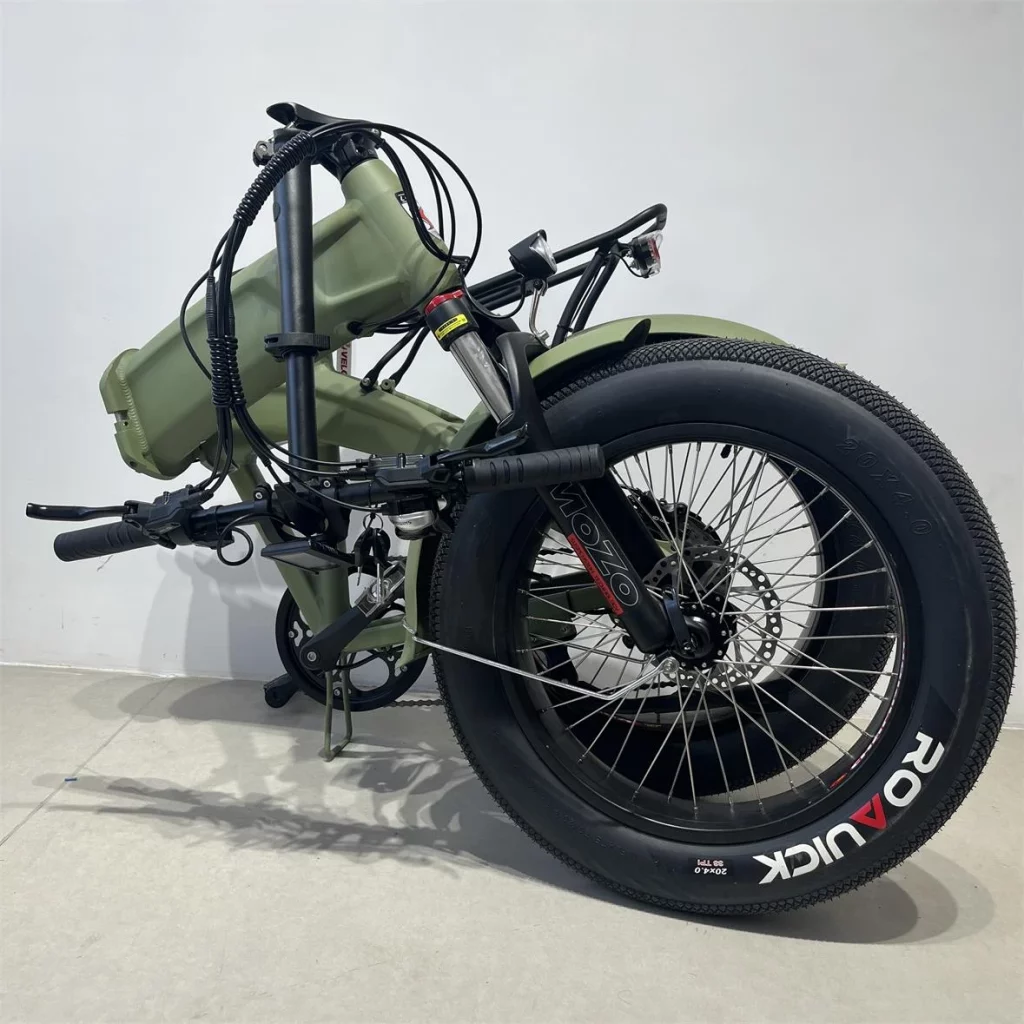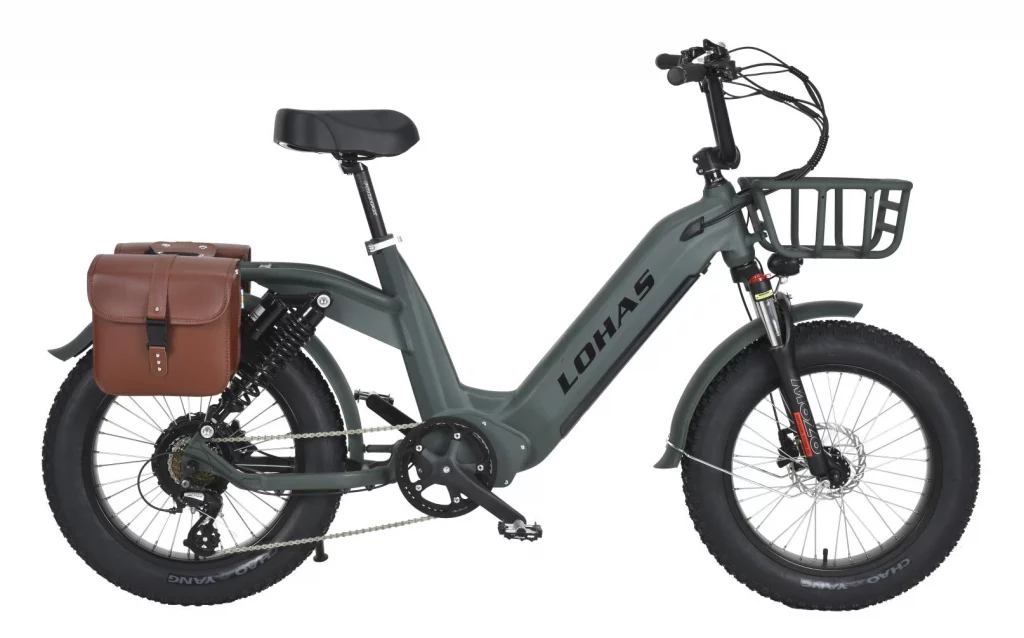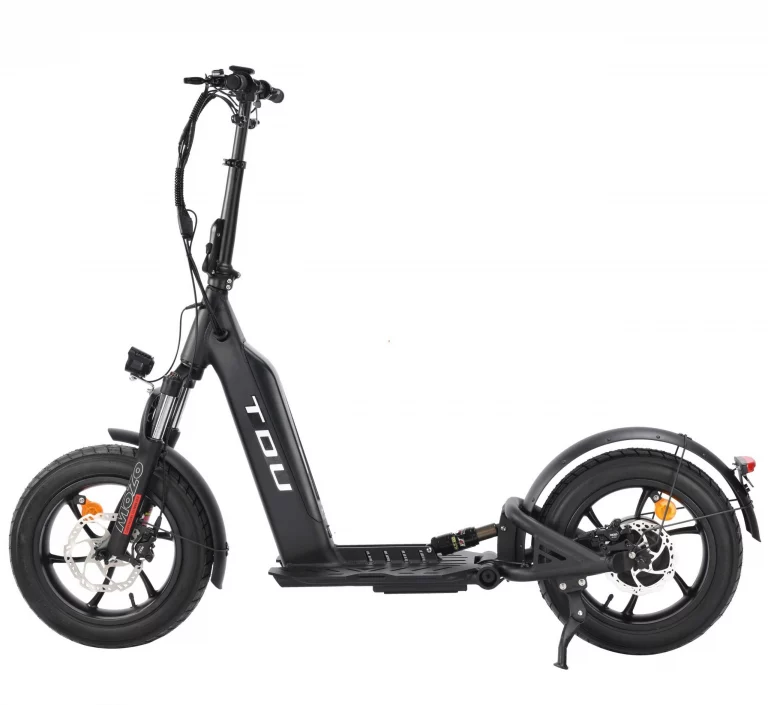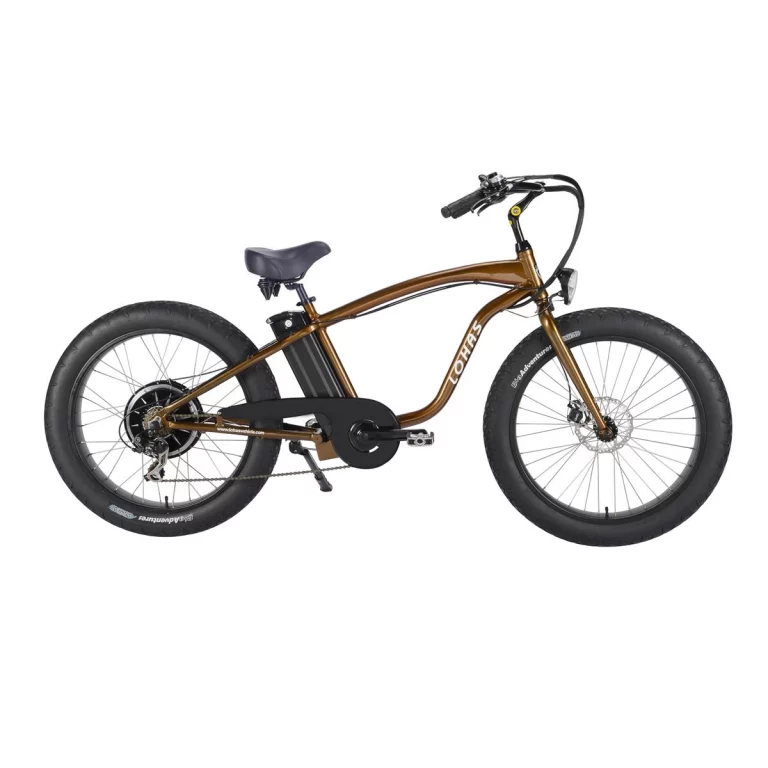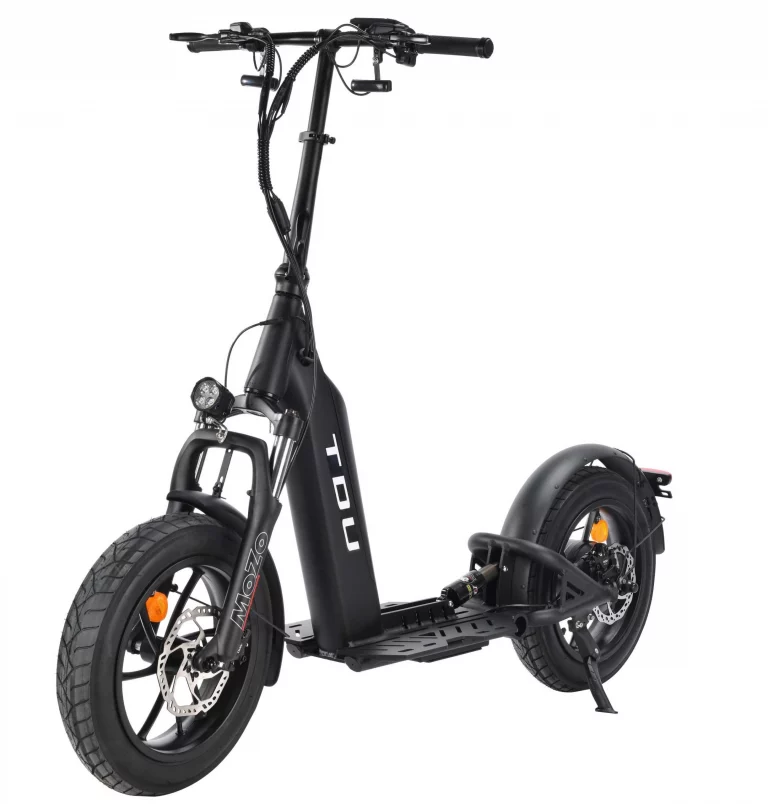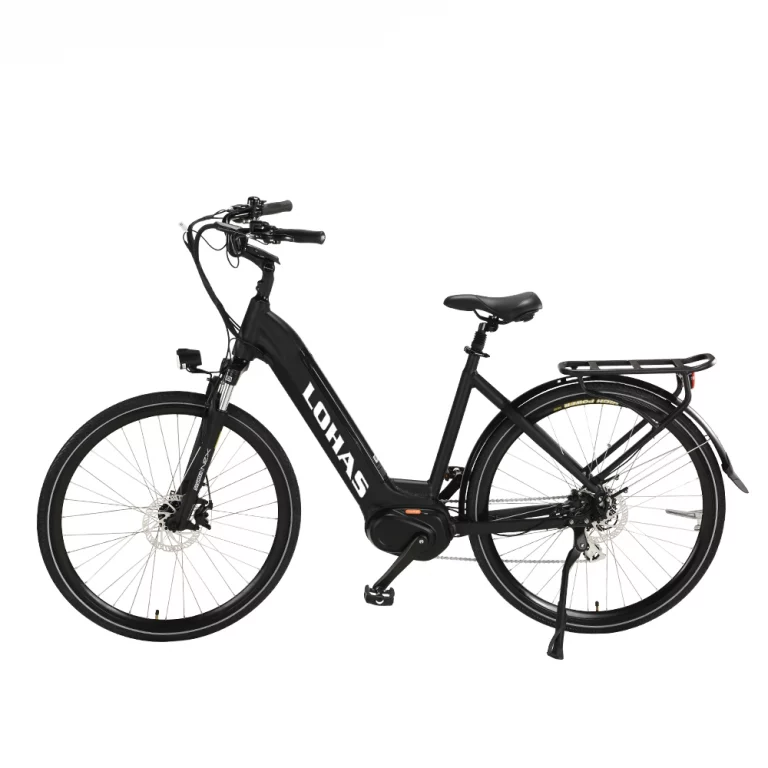Understanding the All-Terrain Electric Bike
Defining All-Terrain E-Bikes
All-terrain electric bikes, commonly referred to as e-bikes, are specifically designed to handle a variety of surfaces and conditions, from smooth pavement to rugged off-road trails. These bikes come equipped with a powerful electric motor that assists the rider’s pedaling effort, making it easier to navigate challenging terrains. The integration of technology allows for enhanced efficiency in how electric bikes perform, ultimately providing riders with a versatile cycling experience.
Key Features and Benefits
Adaptability to Various Terrains
One of the standout features of all-terrain e-bikes is their remarkable adaptability. This adaptability enables riders to transition seamlessly from urban environments to rural landscapes without hassle. Electric bikes are versatile enough to handle different surfaces, including dirt paths, gravel roads, and steep inclines, providing access to diverse adventures.
Enhanced Stability and Control
All-terrain e-bikes offer enhanced stability and control through their design and technology. Features such as wider tires and a lowered center of gravity contribute to better handling, making it easier for riders to maintain balance on uneven surfaces. The advanced braking systems also play a crucial role in maintaining control across varying terrains and ensure a safer riding experience.
Types of Electric Bikes for Varied Terrains
Mountain Electric Bikes
Mountain e-bikes are explicitly designed for rugged trails and challenging elevations. They boast features like reinforced frames and robust suspension systems that absorb impacts, providing a smoother ride on rocky landscapes. Key specifications typically include a powerful motor, high-capacity batteries, and shock-absorbent tires that enable excellent traction on steep climbs.
Key Specifications
Most mountain e-bikes have motors ranging from 500W to 750W, providing sufficient power to tackle even the steepest hills. Additionally, high-capacity lithium-ion batteries with specifications around 48V and 14Ah ensure riders can cover a decent range before needing a recharge.
Optimal Use Cases
These bikes are ideal for enthusiasts who enjoy off-road cycling, trail riding, or mountainous excursions. The designs accommodate various riding styles, making them suitable for both competitive mountain biking and leisurely rides through nature.
Fat Tire Electric Bikes
Fat tire electric bikes are specifically engineered for stability and traction on various surfaces, including snow, sand, and loose gravel. Their distinctly wide tires are instrumental in distributing the bike’s weight, preventing sinking and allowing for better handling on soft or uneven ground.
Specialized Tires for Stability and Traction
These bikes feature tires that are typically 4 inches wide, a critical aspect for riders navigating challenging terrains. The larger contact surface ensures greater grip and stability on slippery or unstable surfaces, enhancing rider confidence during adventures.
Suitability for Different Encounters
Fat tire e-bikes are perfect for users looking to explore diverse environments. They are adept at transitioning from soft sandy beaches to snowy winter trails, showcasing their versatility in various climates and conditions.
Technical Aspects of All-Terrain Electric Bikes
Motor Types and Power Ratings
Comparing Motor Types (Hub vs. Mid-Drive)
When it comes to electric motors, e-bikes can typically be categorized into two types: hub motors and mid-drive motors. Hub motors are located within the wheel’s hub, while mid-drive motors are integrated into the bike’s frame, providing better torque and weight distribution. The choice between these two types often depends on the riding experience desired by the user.
Suitable Power Ratings for Different Activities
Power ratings for all-terrain electric bikes can generally range from 250W to 1000W, with higher wattages offering more assistance on steep inclines. Riders who frequently navigate hilly terrains should consider a bike with a higher power rating to enhance their riding experience.
Battery Life and Range
Factors Affecting Battery Performance
Battery life in electric bikes is influenced by numerous factors, including the rider’s weight, terrain difficulty, and chosen level of motor assistance. Efficient energy consumption requires a balance between these variables to extend the bike’s range.
Tips to Extend Battery Life
To maximize battery life, riders should engage in regular maintenance, including ensuring that tires are properly inflated and that the bike is kept clean. Utilizing lower levels of assistance on easier terrain and managing speed effectively can also contribute to longer battery life.
Factors to Consider When Buying an All-Terrain Electric Bike
Top Attributes to Assess Before Purchase
Frame Material and Build Quality
The frame material of an electric bike plays a crucial role in its overall strength, durability, and weight. Commonly, all-terrain electric bikes are constructed from materials such as aluminum and carbon fiber, each offering unique advantages. Aluminum is lightweight and resistant to rust, making it a popular choice for those needing a balance of strength and portability. On the other hand, carbon fiber, while potentially more expensive, provides enhanced shock absorption and rigidity, crucial for rough terrains. Buyers should also ensure that the overall build quality boasts reliable welds and finishes, as these influence performance and long-term reliability.
Brake Systems and Safety Measures
Safety is paramount when selecting an all-terrain electric bike, which is why evaluating the braking system is essential. Many e-bikes are equipped with hydraulic disc brakes, known for their superior stopping power and responsiveness, even in adverse weather conditions. Riders should also consider the integration of additional safety features, such as LED lights, reflective materials, and electronic brake systems, which can provide enhanced visibility and control. Overall, ensuring that the braking system offers reliable performance helps improve rider safety, especially when confronting steep or uneven terrains.
Additional Features to Look Out For
Beyond the basic specifications, several additional features can improve the riding experience. For instance, adjustable suspension systems can significantly enhance comfort and control, particularly on rugged trails. Another notable feature is the inclusion of smart displays that provide comprehensive ride data, including speed, trip distance, and battery life, aiding riders in managing their journeys effectively. Additionally, compatibility with accessories like racks, fenders, and lights can further customize the bike for specific riding conditions, making these features noteworthy.
An Overview of Yongkang LOHAS Vehicle Co., Ltd
Company Background
Yongkang LOHAS Vehicle Co., Ltd is a reputable manufacturer established in Yongkang City, renowned for its dedication to designing and producing quality electric bikes. The company focuses on sustainable transportation solutions, prioritizing eco-friendly practices in its operations. With a robust R&D team, LOHAS ensures that its products embody innovative technologies and craft, setting industry standards in electric mobility. Their commitment to quality and performance has earned them a respected position within the global electric bike market.
Product Range
Yongkang LOHAS Vehicle Co., Ltd offers an extensive selection of electric bikes tailored for various riding conditions and user preferences. The extensive product range encompasses mountain electric bikes, fat tire e-bikes, and urban commuting options, catering to both recreational and practical riding needs. Each product is engineered to meet international quality standards, ensuring reliability and satisfaction for a wide-reaching customer base. This diverse catalog reinforces LOHAS’s mission to promote greener travel alternatives and expand the appeal of electric biking.
Highlighted Products from LOHAS’ Electric Bike Collection
Among the standout offerings from LOHAS is the KCMTB045 model, designed for those who thrive on rugged trails. It features a powerful 500W brushless rear hub motor combined with a robust 48V 17.5Ah battery, providing a range suited for extensive outdoor excursions. Additionally, its durable aluminum alloy frame and Shimano 7-speed gearing ensure excellent performance across various terrains. The KCMTB039, another impressive entry, provides an outstanding capability paired with a 500W motor and 20-inch fat tires, enhancing stability on diverse paths. Each model reflects LOHAS’s commitment to creating products that blend functionality with eco-conscious design.
Real-World Applications of All-Terrain E-Bikes
Commuting in Urban Settings
All-terrain electric bikes are not restricted to outdoor adventure; they also serve as suitable commuting options within urban landscapes. The combination of electric assistance and versatile design enables riders to navigate busy streets and crowded sidewalks with ease. Additionally, the integration of features such as regenerative braking and maintainability makes these bikes practical choices for daily commuting. Riders can enjoy the benefits of reduced physical exertion while simultaneously contributing to environmental sustainability by choosing e-bikes over conventional vehicles.
Recreational Trail Riding
Beyond commuting, all-terrain electric bikes offer significant recreational benefits. Enthusiasts can enjoy leisurely rides on local trails or embark on challenging journeys through forests and mountain paths. The unique adaptation of these e-bikes allows users to appreciate nature while experiencing the thrill of cycling without the physical fatigue often associated with traditional biking. With various power settings, riders can tailor their experience, making all-terrain e-bikes ideal companions for outdoor enthusiasts seeking adventure.
Outdoor Adventure Expeditions
All-terrain electric bikes open new avenues for outdoor exploration. Designed to traverse diverse landscapes, they perform admirably in scenarios ranging from beach excursions to forest trails. Riders can efficiently access remote areas that might have otherwise remained unreachable, enhancing their ability to explore nature. The electric assistance features enable longer rides and navigating more challenging terrains, thus providing outdoor adventurers with an exhilarating experience without the constraints of traditional biking.
In conclusion, all-terrain electric bikes significantly enhance mobility and accessibility for users, whether for daily commuting, recreation, or adventure. Through careful consideration of attributes such as frame material, brake systems, and additional features, potential buyers can discover a bike that suits their specific needs. Companies like Yongkang LOHAS Vehicle Co., Ltd continue to innovate in this space, ensuring that all-terrain electric bikes remain versatile, durable, and eco-friendly, appealing to both seasoned cyclists and newcomers alike.


